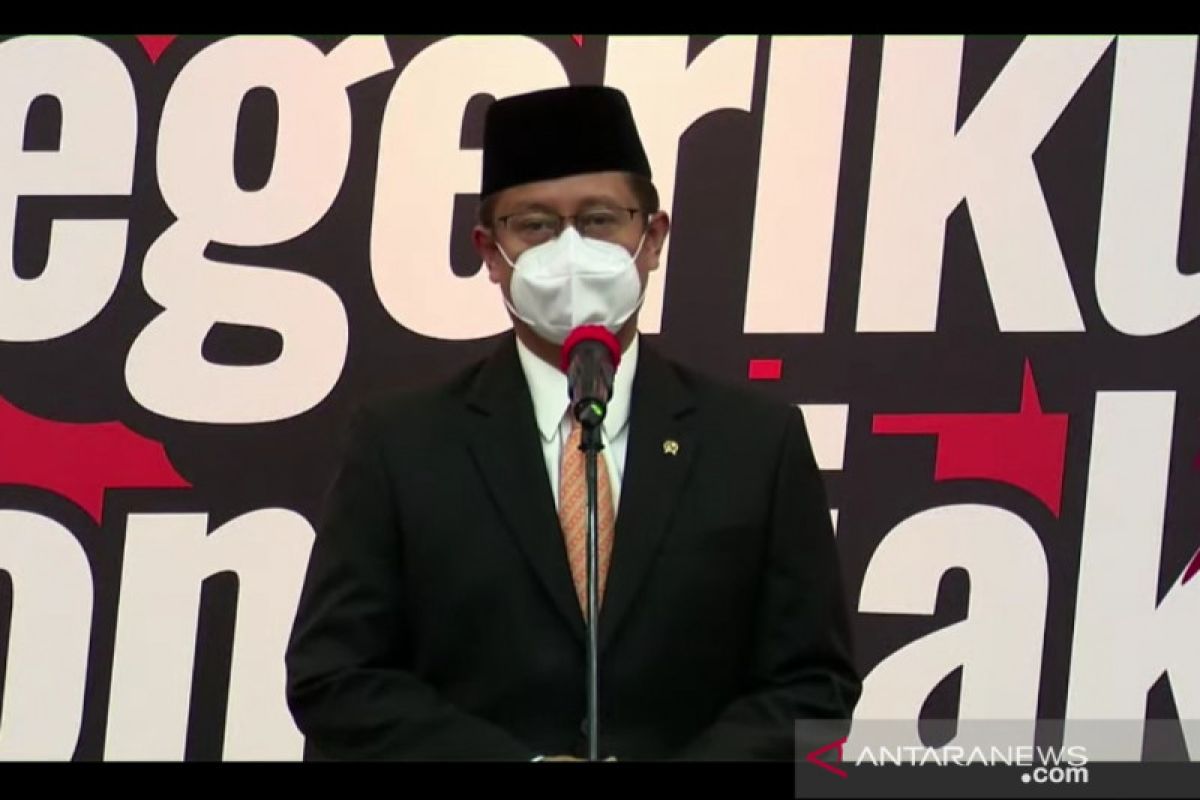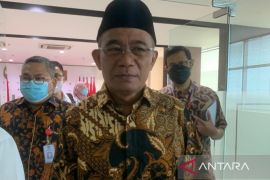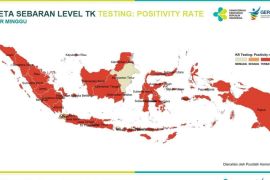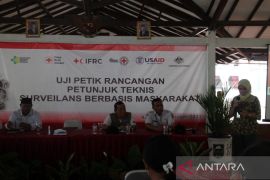The global COVID-19 pandemic challenged the status quo of Indonesia's health system, he said.
"It is still fresh in our minds: hospitals were full of patients, the sound of ambulance sirens constantly ringing, the difficulty of finding treatment rooms or medicine for our loved ones, even many people, officers, and health workers died because of COVID-19," he noted during his speech at the 57/2021 National Health Day (HKN) in Jakarta on November 12, 2021.
Staying at the crossroad has brought the nation various health problems, he said. The pressure exerted by the COVID-19 pandemic on healthcare facilities has led to a tendency of other disease emergencies getting overlooked, he added.
The bitter experience at the bottom level of the Indonesian health system has been a warning about the limited capacity for control at the top level in efforts to prevent, detect, and respond to potential health crises, he noted.
Indonesia has continued to improve in bringing its COVID-19 pandemic situation under control. Currently, the number of COVID-19 cases has decreased drastically from their peak of 56 thousand confirmed cases per day in July 2021 to 500 cases. The bed occupancy rate has also drastically reduced to just around 3 percent.
An epidemiologist from the University of Indonesia, Pandu Riono, said the two COVID-19 waves in Indonesia have spread quite fast. The first one million cases were reached in one year, the next million cases took almost six months, and the next one million cases took only a month, he added.
"It shows that the more people who are infected, the more the (virus) transmission happens massively," he noted.
Riono assessed that the key to Indonesia’s success in handling COVID-19 is integrating the 5M health protocols--wearing masks, washing hands, maintaining social distance, reducing mobility, avoiding crowds--to prevent virus transmission, the 3Ts (testing, tracing, treatment) to break the chain of virus transmission, and the nationwide vaccination program to bolster people’s immune system.
Path to change
The pandemics that have hit the world earlier have demanded changes in human behavior for better health. An example is the Black Death that first hit Europe in the mid to late 14th century.
At the time, soap products emerged to make it easier for people to wash their hands so that the Black Death, caused by fleas carried by rats, would not spread.
Another example is the human immunodeficiency virus (HIV), which caused millions of deaths and changed people’s sexual behavior.
Likewise, new habits have been adopted amid the COVID-19 pandemic, which has stretched for almost two years now. To emerge from the pandemic, a consistent shift to healthier habits has become essential.
Government spokesperson for COVID-19 handling, Reisa Broto Asmoro, said the implementation of health protocols has been proven to help reduce disease transmission in some regions in Indonesia and the world.
In September 2020, scientists from the Center for Disease Control and Prevention, Atlanta, US, reported that mask-wearing and social distancing reduced the incidence of seasonal influenza in the United States, she noted. A similar situation was also reported in Chile, Australia, and southern Africa, she pointed out.
Domestically, the Karangasem Community Health Center, Bali, also witnessed similar results. Health protocols reduced cases of acute respiratory infections (ARI) from 945 cases in 2019 to 750 patients in 2020, and as of October 2021, only 450 cases were recorded, Asmoro informed said.
The habit of washing hands with soap and running water for at least 20 seconds also helps reduce the entry of germs into the human body, she pointed out. This has been seen in Agam District, West Sumatra, where diarrhea cases decreased by 1,300 cases in 2020 compared to 2019, she said.
The spokesperson said social distancing is believed to prevent infectious diseases such as coughs, colds, and even tuberculosis. However, there has been no comprehensive study on this, she said.
The reduction in public mobility to 30 percent below the average during the implementation of Public Activity Restrictions (PPKM) and Large-Scale Social Restrictions (PSBB) at the beginning of the pandemic also helped reduce pollution and improve air quality, she noted.
"The Ministry of Environment and Forestry reported that the air pollution standard index in Jakarta, Padang, Pekanbaru, Makassar, and Banjarmasin has decreased," she informed.
Transformation
Health protocols, 3Ts, and vaccinations, in fact, have only paved the way for change. Further steps are still needed for Indonesia to survive future pandemics.
The 2021 National Health Day commemoration is the right momentum for the government to transform the health system in six areas of public service, the Health Minister said.
"I, along with Indonesia's President Joko Widodo, chose the second road, the road of changes. With the mandate from the President, the Health Ministry will continue to transform Indonesia's health system," Sadikin affirmed.
The fundamental reformation of Indonesia’s health system includes six pillars, he said. First, the transformation of primary services is being implemented by strengthening prevention efforts, early detection, health promotion, building infrastructure, equipping facilities, infrastructure and human resources, as well as enhancing management of primary services, he informed.
The next transformation is being implemented in referral services of healthcare facilities by increasing access and the quality of Indonesian hospitals through sister hospital programs with international hospitals, the development of Centers of Excellence, hospital support systems, and education and research, he said.
The third transformation is targeting the health security system by encouraging the indigenous development of pharmaceuticals and medical devices, as well as increasing surveillance networks and preparing backup health workers for responding to the threat of a possible health crisis, he added.
In addition, the Ministry of Health has also carried out transformation in the health financing sector by rearranging the financing and benefits under the National Health Insurance (JKN) and increasing the proportion of funding for promotive and preventive services through increasing basic screening services for all citizens, the minister said.
The fifth measure has been transforming human resources for health by increasing the quantity, distribution, and quality of health workers through scholarships, empowerment of health diaspora, and exchange programs for health professionals with international partners, he added.
Lastly, a transformation has been initiated in health technology, which includes information technology and biotechnology, Sadikin said.
The Health Minister further said he expected the six pillars to serve as a guide to the Indonesian people on the path to change.
"A guide for us, wherever we are and whatever our role in this journey, we can move toward the same goal, a healthy Indonesia," he remarked.
Editor: Rahmad Nasution
Copyright © ANTARA 2021












